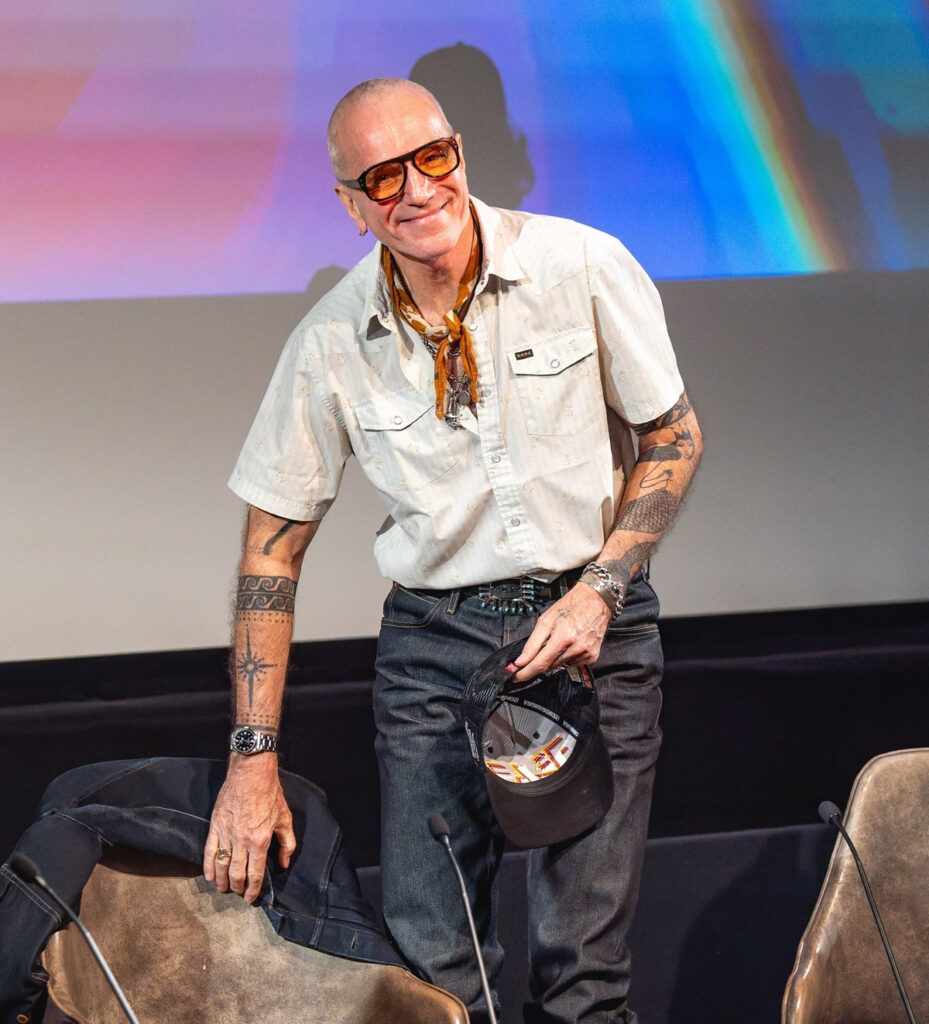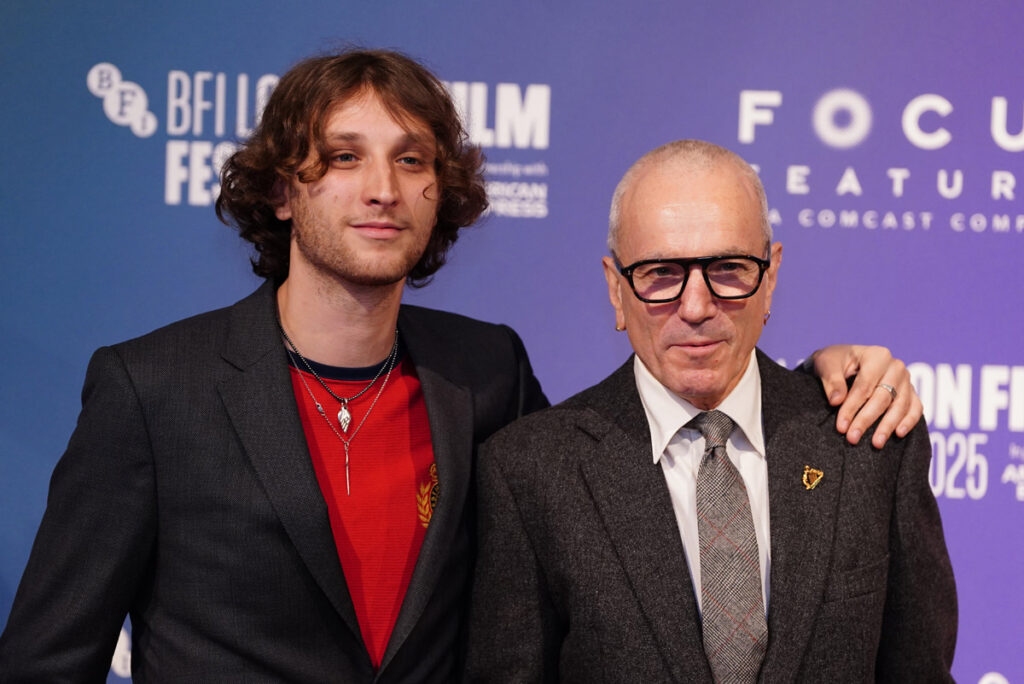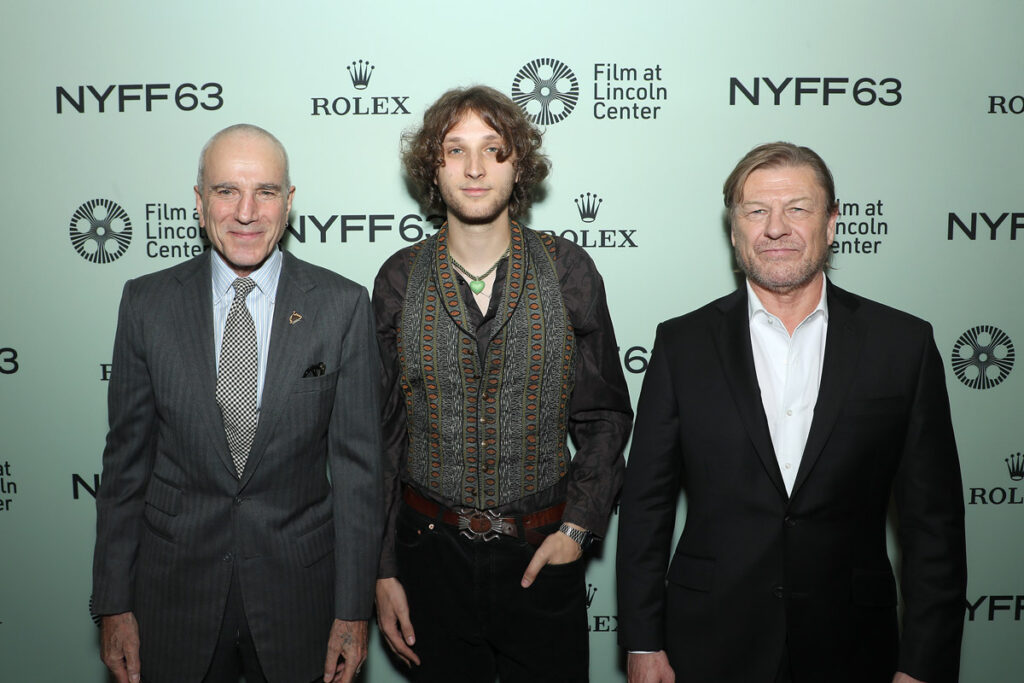
Back in 2017, at the age of 60, Daniel Day-Lewis announced somewhat out of the blue that he was officially retiring from acting. All he had left to attend to was promoting a film he already had in the can — Paul Thomas Anderson’s Phantom Thread, for which DDL was nominated once again for a Best Actor Oscar (which he lost to Gary Oldman’s prosthetics in Darkest Hour). On the whole, it was a weird move from DDL. He already worked on fewer projects than most actors, with several years going between films. His was not the Nicole Kidman approach, so it’s not like anyone would have immediately said, “Why aren’t you working?!” I guess my point is, it seemed like a limiting move to so publicly declare a chapter ended. Especially because it turned out DDL wasn’t in fact finished! Last year we learned he would be starring in Anemone, a film he cowrote with his son Ronan who makes his directorial debut with the feature. Anemone just screened at the London Film Festival, where DDL fielded questions from an audience about his practice of the infamous Method acting:
The accomplished actor — a three-time best actor Oscar winner for “My Left Foot” (1989), “There Will Be Blood” (2007) and “Lincoln” (2012) — is known for his immersive process, devoting himself to staying in character throughout filming. Despite how it’s worked out for him, going Method has received a fair amount of pushback in recent years from those who believe it to be unhealthy — or just plain silly.
However, Day-Lewis pushed back against these notions after an audience member asked about his acting process, saying: “All the recent commentary in the last few years about Method acting is invariably from people who have little or no understanding of what it actually involves. It’s almost as if it’s some specious science that we’re involved in, or a cult. But it’s just a way of freeing yourself so that the spontaneity, when you are working with your colleagues in front of the camera, that you are free to respond in any way that you’ll move to in that moment.”
Day-Lewis went on to explain that going Method doesn’t mean “you’re sealed off from experiencing” your own real life, but rather that “you’re in a self-contained experience of your own.” He continued: “But really, if you’ve done your work, you should be free to accept whatever passes through you.”
…Before discussing both “Anemone” and “Phantom Thread,” Day-Lewis reflected on Jim Sheridan’s “My Left Foot,” which marked a pivotal moment in both his career and acting process. … “Because there was no money when I signed up for it, I moved over to Dublin on this wing and a prayer,” he said. “And there was all the time in the world. I started to work with these wonderful people, I had a little house and I had my paints and my wheelchair and everything I needed. I guess I had a couple of months before we finally scraped enough money to do the first few scenes and I thought: I’m never not going to work like this again.”
Explaining why he takes his research for roles to such extremes, Day-Lewis said: “Look, it’s very easy to describe what I do as if I’m out of my mind. Plenty of people have been happy to do that, but it just makes sense to me … You have an obligation to try to understand as far you’re humanly able to what it feels like to be inside of that experience.”
It’s time for me to show my cards here: I actually studied for years at the Lee Strasberg Institute, Strasberg being the influential 20th century acting teacher who put the “method” on the map. Long (loooong) gone are the days when I feel defensive about it, but it always struck me, as DDL suggests, that the common conception of the Method is actually a misconception. At no point was it meant to be, “Stay in character the whole time! Make people call you by your character’s name!” or whatever other d-ck shenanigans Jared Leto does on set. What I was taught, was that the Method was a network of exercises designed to help an actor behave truthfully under imaginary circumstances. That’s it! I give credit to DDL here for saying his piece so clearly and simply. The way he describes his approach to the Method, it does indeed just make sense. Obviously the more you’ve done your homework, the more second nature it is, the more you’ll be freed up to respond in the moment, as DDL says. Also, I think there’s something telling — culturally or generationally, I’m not quite sure — about people viewing the undertaking of a lot of research as “extreme.”
- Screening of ‘Anemone’ at the National Film Theatre, BFI Southbank, London, as part of the BFI London Film Festival Featuring: Daniel Day-Lewis Where: London, United Kingdom When: 14 Oct 2025 Credit: Ian West/PA Images/INSTARimages **NORTH AMERICA RIGHTS ONLY**
Photos credit: Cover Images, Ian West/PA Images/INSTARimages, Raphael Pour-Hashemi/Backgrid, Marion Curtis/StarPix for Focus Features/INSTARimages








I’ve seen this point made before and while I agree in part with his comment that the critique often comes from people who don’t understand the principles, I think the bigger issue is actors claiming to be ‘method’ who don’t understand what it’s truly about as using it as an excuse to be terrible co-workers
Exactly. THAT is not Method acting. That is just being insufferable.
^
This
The times I’ve seen people pushing back on it were because actors being ridiculous assholes used it as an excuse for being assholes – staying in character 24 x 7, doing things that made the production difficult, whatever the heck Leto does sending obscene materials to co-stars, and even the not-so-much purposefully being assholes but idiots like Austin Butler in his Elvis phase to the extent he claims he forgot how to talk normally or Gaga in that Gucci movie. They’re the ones throwing around or alluding to Method incorrectly, the rest of the world is just “un, no, you’re just being an idiot/ asshole “
Like many things, the idea is seen and enacted through the lens of the individual. Many great ideas and methods and philosophies have been brutalized by people who would rather use them to get what they want than to adhere to them and use them to grow.
Look at how many unhoused people, refugees, immigrants and the hungry are treated by those who claim the most loudly to be devout members of various religions based on love and kindness.
Method acting for many seems like a way for egotistical assholes to white wash their horrible behavior as being “artistic” and their “difficult personality” as the result of following and being the most immerse and best kind of actor. It’s not actually THEM. it’s method acting! They are a delight. Just not when they are doing their job in a professional capacity – then they make their existence everyone else’s problem.
🎯
I studied Method as well Kismet here in Chicago when I was acting and I do think people misunderstand it when you mention it. I found it very helpful and kind of took from it what I needed for character development. I do think some folks (Daniel and Jared included) that take it too far and it almost feels like it’s used as a personality crutch. I always felt that if you did the work you could put it aside and pick it back up as needed. You don’t have to live your entire life in character.
As for Daniel’s retirement – I rolled my eyes so hard when he announced it in 2017. That was the SECOND time he had done so. I think personally he should just quietly take his long breaks and not make huge public declarative statements about it. It’s that aspect of his personality that I find obnoxious.
Not wanting to do a lot of research used to be called “being lazy.” People have this idea that they can half-ass their way to becoming an expert. Maybe it’s the DYI/YouTube/TikTok phenomenon that’s encouraging people to believe they can “hack” their way into greatness, I don’t know.
Excuse me are we not going to talk about the tattoos?? Was this common knowledge that I have somehow missed over the last 40 years?? This is the second thing I’ve read this morning and now I’m wide awake and a little horny.
When people criticize actors who do method acting, none of them are thinking of Daniel Day Lewis. They’re thinking of people who use “being in character” as an excuse to treat other people like crap and be generally horrible.
Finally an intelligent discourse on method.
I agree that most don’t understand it and the unwillingness to do deep dive research is fueled by laziness and the instant gratification of AI and social media.
Jeremy Strong has been much and unfairly maligned for using method, when the results he’s achieved prove it works when used properly.
Overrated, obnoxious, up his own butt… he just comes off extremely pretentious.
His bone to pick lies with his fellow actors, Im afraid. Theyre the ones giving the Method method a bad name.